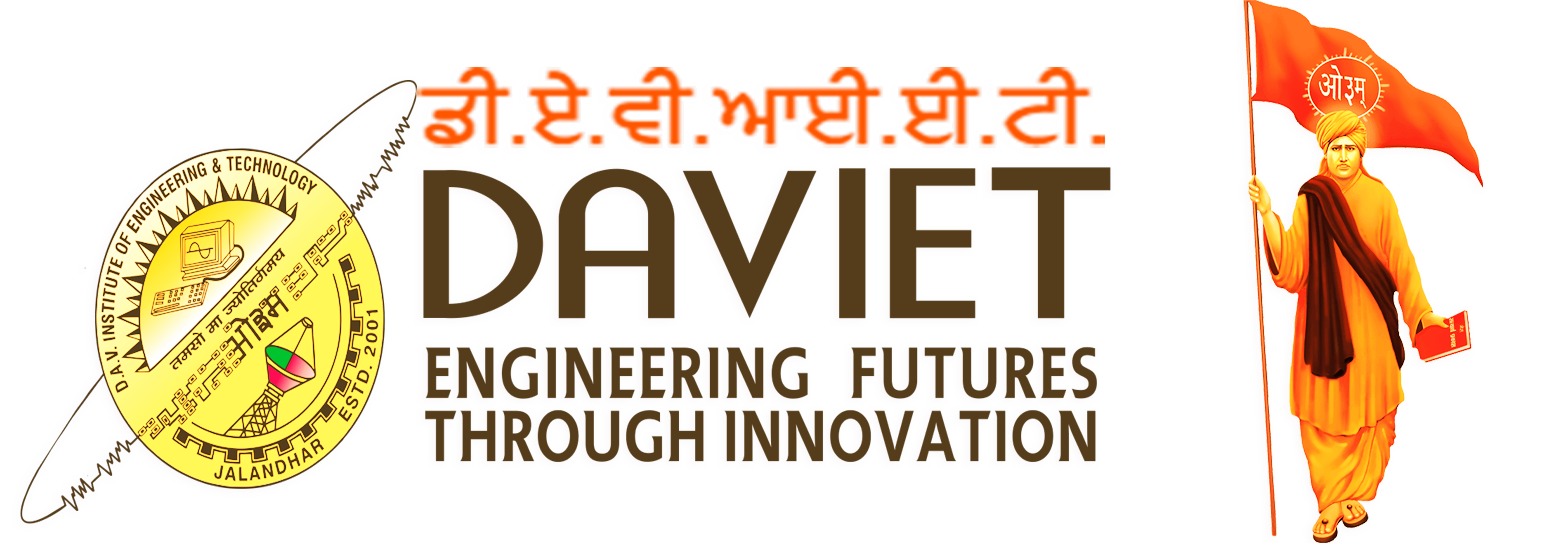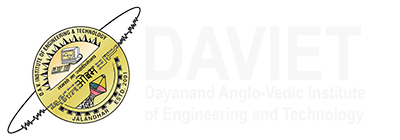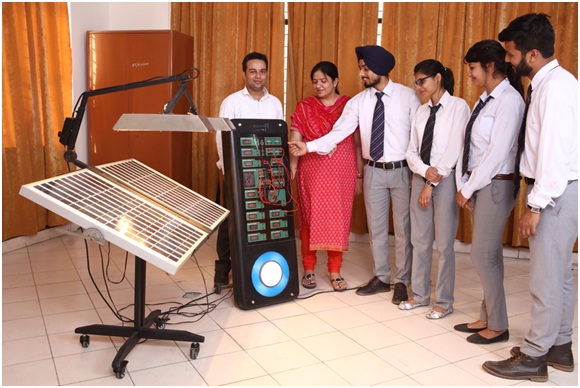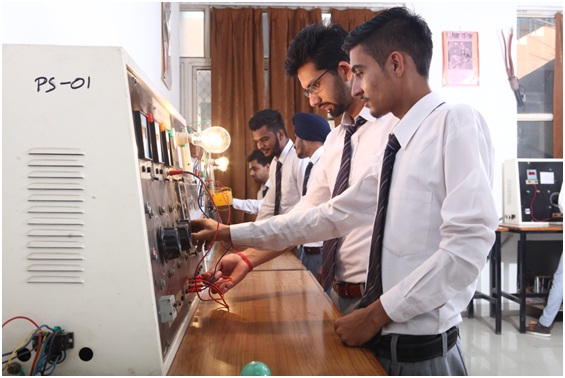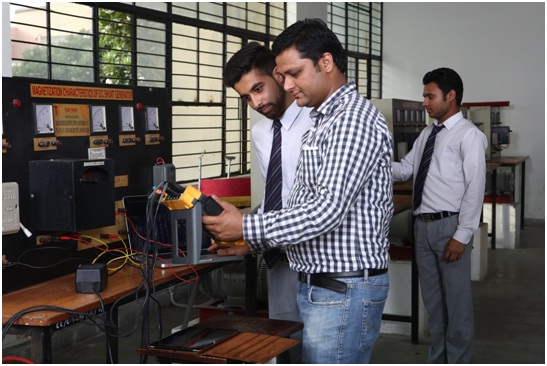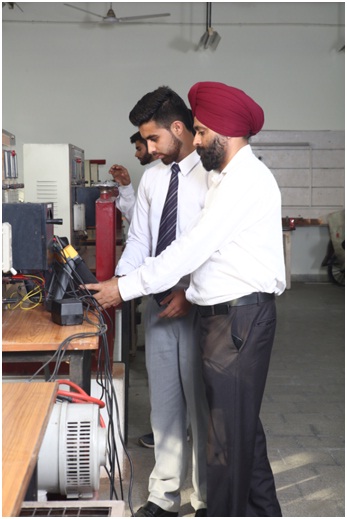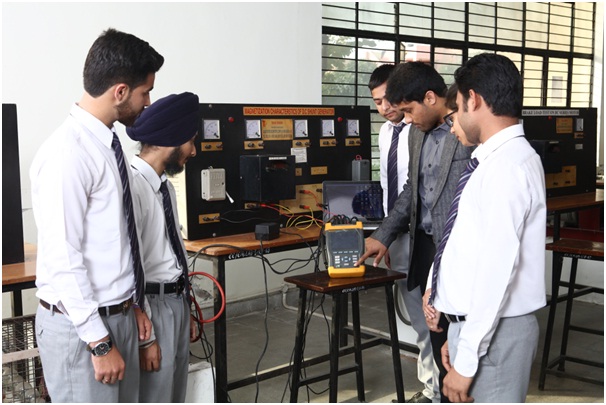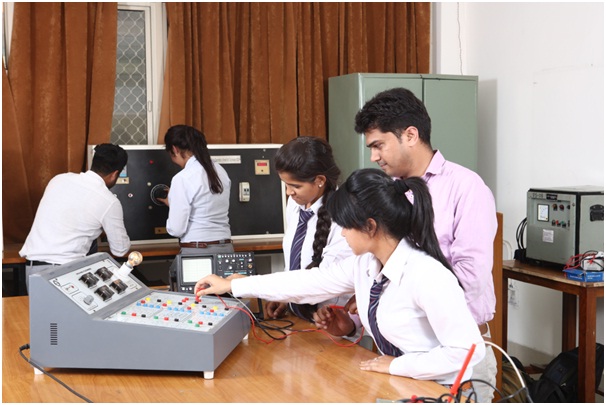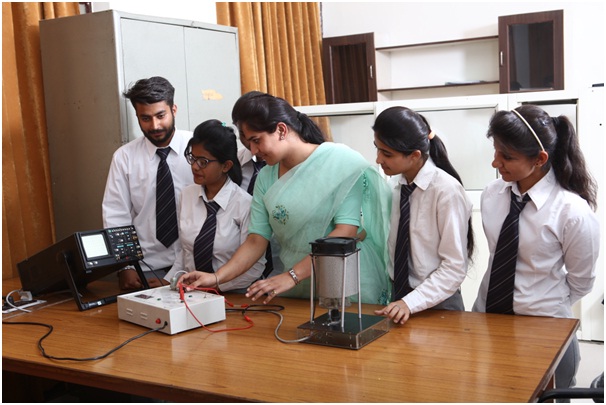The mission of the Electrical Department is to enhance knowledge and educate students in latest technologies used in industry and power sector. We are committed to generate, disseminate and preserve knowledge and to use it to bear the world’s great challenges. The labs of electrical engineering departments are well equipped with latest equipment/tools/instruments and machines to cater to the requirements of engineers and researchers.
Laboratories Facilities
- Basic Electrical Engineering Lab
Ability to use common electrical measuring instruments and to make electrical connections, and measure power, power factor using appropriate equipment. Understand the operation of transformers and electrical machines.
- Analog Electronics Laboratory
Analyze to understand circuit behavior and performance under different conditions and create electronic circuits meant for different applications, Evaluate working of small projects employing semiconductor devices.
- Electrical Machines – I Laboratory
Analyze three-phase transformer/system connections, parallel operation of transformers, performance characteristics of DC generators. Evaluation of equivalent circuit parameters, efficiency and voltage regulation by performing various tests on transformer.
- Measurements and Instrumentation Lab.
Design and validate DC and AC bridges. Analyze the dynamic response and the calibration of few instruments, learn various measurement devices, their characteristics, their operation and their limitations.
- Digital Electronics Laboratory
Understand of basic electronic components and circuits. Verify truth tables of TTL gates, Design, fabrication and realization of all gates and basic circuits
- Electrical Machines – II Laboratory
Construct equivalent circuits and characteristic curves for induction motors and synchronous motors by routine tests. Comprehend the requirement of starting and speed control methods. Understand the concept of parallel operation of three phase alternators.
- Power Electronics Laboratory
Study the characteristics of thyristors, Check the performance of a choppers and inverter. Analyze speed and direction control of single phase and three phase electric motors using ac and dc drive.
- Power Systems-I Laboratory
Visits to power system installations, Exposure to fault analysis, Electro-magnetic transient program (EMTP) and Numerical Relays
- Control Systems Laboratory
Understand the modelling of linear-time-invariant systems using transfer function and state-space representations. Understand the concept of stability and its assessment for linear-time invariant systems. Designing of feedback controllers.
- Microprocessors Laboratory
Doing interfacing design of peripherals like 8255, 8253, 8279, 8251 etc., Develop systems using different microprocessors.
- Electronic Design Laboratory
Group projects involving electronic hardware (Analog, Digital, mixed signal like PCB, FPGAs, CPLDs, sensors, signals, Embedded systems, microcontrollers etc.) leading to implementation of an application.
- Power Systems-II Laboratory
Programming of numerical methods for solution of the power flow problem and stability analysis
- Minor Project
- Major Project
